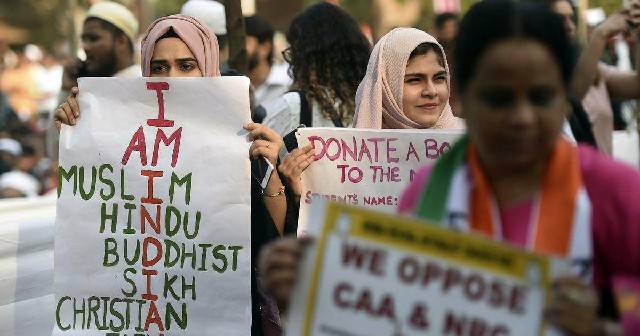
August 11 came and passed and the usual platitudes were offered by leaders in the government: how deeply concerned they were about the welfare of the non-Muslims, how our religion as well as the Constitution of the Pakistan protected the rights of the non-Muslims and how Pakistan abided by its commitments made to the world community by signing international covenants guaranteeing rights of minorities.
The government submits reports periodically to relevant UN human rights bodies concerning the human rights situation in the country. With reference to non-Muslims and torture, these reports open with claims like this: “The allegations of torture are unfounded as the Constitution specifically forbids it. Non-Muslims enjoy all rights as the Constitution forbids discrimination on the basis of gender, creed and religion.”
While making such tall claims the official reports totally ignore torture in the police stations and the internment centers that are not even subject to jail manuals. Sometime ago, the National Commission on Human Rights (NCHR) attempted to send to the UN Human Rights Council a shadow report on torture but it was not allowed to do so. When the chairman of the commission retired in May 2019, the government did not appoint his successor, resulting in the effective disbandment of the commission itself.
With regard to non-Muslims, it must take a lot of gumption to claim that the Constitution does not permit discrimination. Lest it be forgotten: The Constitution discriminates against non-Muslims. Article 41 (2) states “A person shall not be qualified for election as President unless he is a Muslim of not less than 45 years of age and is qualified to be elected as member of the national assembly.” Likewise, the oath of office for the prime minister states “I, do solemnly swear that I am a Muslim and believe in all the requirements and teachings of the Holy Quran and Sunnah.”
A sinful person can thus become the president or prime minister, provided he is a Muslim. However, a pious, righteous and God-fearing Pakistani is not eligible to hold these offices only because of faith.
It was reported that the UN has declared 139 individuals and organizations in Pakistan as terrorists. Has anyone heard of any action taken against them?
A non-Muslim member of parliament is required to take the same oath administered to a Muslim member. Representatives of non-Muslims can be elected only indirectly. Instead of election by members of their own communities, they are selected by the leaders of their respective political parties, regardless of the leaders’ commitment to the issues of the non-Muslim communities.
With such built-in discrimination, isn’t it audacious to claim otherwise?
The state relationship with the non-Muslims at best is to take them for granted and at worst is to cheat them. The Objectives Resolution stated “Wherein adequate provisions shall be made for the minorities freely (emphasis added) to profess and practice their religions and develop their cultures.” General Zia secretly deleted the word ‘freely’ from the text and made the Objectives Resolution a substantive part of the Constitution. Not one Muslim protested against this outrage. If this is not cheating the non-Muslim minorities, what else is it? It was only at the time of the 18th Amendment in 2010 when the word ‘freely’ was restored in the Preamble.
Claiming to end discrimination the system of separate electorate was finally abolished but how? A particular community was excluded and their status remains unchanged.
A March 2018 verdict of the Islamabad High Court said that all citizens should be easily identifiable by their faith. The order said that applicants for public offices declare their beliefs before being considered eligible. That citizens’ faith should be mentioned on birth certificates, ID cards, voters’ lists and passports. It made oath regarding faith compulsory when joining civil service, armed forces or judiciary, for CNIC, birth certificates, electoral lists and passports.
The lack of respect for the rights of religious minorities is largely due to the virus of intolerance that has infested the people’s minds. Intolerance has increased because the narrative of the state itself is supporting extremism.
That is why militant organizations have been allowed to participate in elections and proscribed militant organizations allowed to resurrect under other names. When the UN decided to impose sanctions on Jaishe Muhammad leader Maulana Masood Azhar, the government leaned on China to thwart the move. Some time back, it was reported that the UN has declared 139 individuals and organizations in Pakistan as terrorists. Has anyone heard of any action taken against them?
Article 22 of the Constitution states that: “No person attending any educational institution shall be required to receive religious instruction, or take part in any religious ceremony, or attend religious worship, if such instruction, ceremony or worship related to a religion other than his own.” But just look at the textbooks that denigrate other religions. Instead of correcting it, the federal government is now introducing single national curriculum (SNC) to further alienate the non-Muslims.
The one-man commission on minorities appointed by the Supreme Court in his report to the court supported the contention of non-Muslims regarding syllabi in the light of Article 22 of the Constitution. The chairman of the Council of Islamic Ideology (CII), an otherwise respected religious scholar, jumped into the fray and publicly rejected the contention of the one-man commission on the issue of syllabi. Article 229 of the Constitution states that the council may give advice on any question referred to it by the president or the governor of two fifths of the total membership of a House or a Provincial Assembly. But in the case of non-Muslim minorities, the worthy chairman thought it proper to render an unsolicited advice.
Can the non-Muslims draw any comfort from the hollow claims that there is no discrimination against them?
The writer is a former senator.

